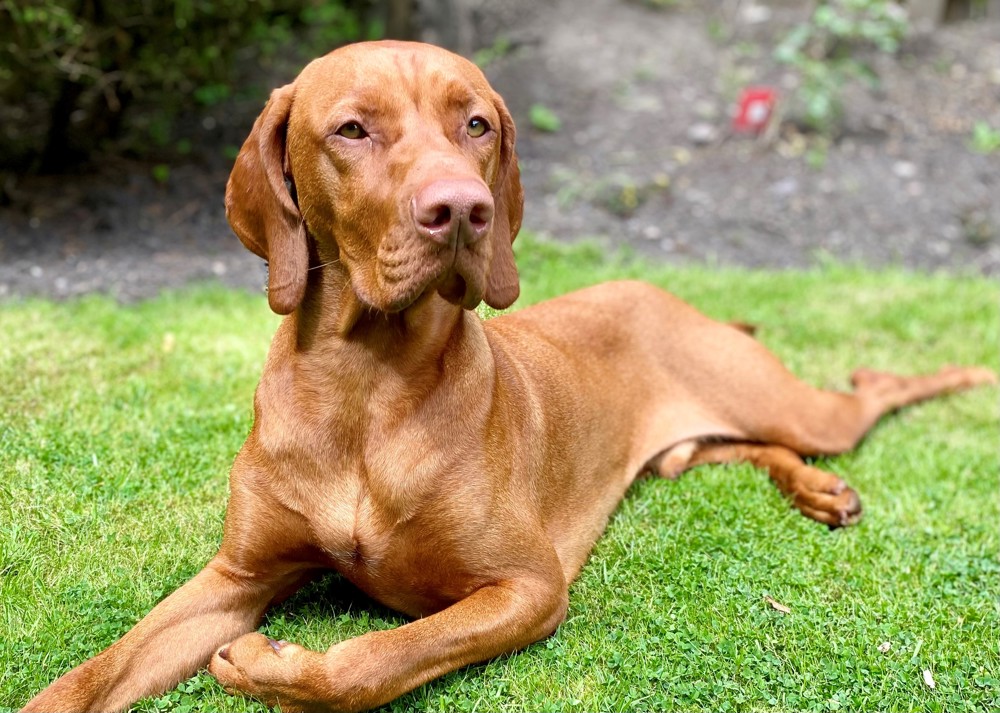
Owners warned of the hidden hazards of summer, as July sees the highest surge in injuries
New research released today (2 July) by The Kennel Club reveals that dogs are most at risk of injury from grass seeds this upcoming month, with a third (31%) of all claims in the last year made in July.
The data, collected by Kennel Club Pet Insurance, provided by Agria, also revealed that three-quarters (76%) of all claims were made between July – September. As such, the organisation is urging dog owners to remain vigilant to these hidden hazards when out on walks, after one Hungarian Vizsla had a terrifying experience.
Grass seed injuries are a common problem for dogs, particularly during the summer months. Resembling tiny arrowheads, they can easily attach themselves to an animal’s fur and burrow into the skin, causing pets pain and discomfort. The most commonly affected areas are the paws and ears, but they can also go up their nose, and breeds with hairy ears and paws are more at risk when in meadows or woodlands.
Max, a Hungarian Vizsla, startled his owner Megan Hofmann, from Gateshead, Tyne and Wear, when he let out a pained yelp. Upon initial check, Megan couldn’t find anything wrong, but during a later walk he wouldn’t pick up his ball, or open his mouth wide.
After being taken to the vets, a scan revealed a grass seed had pierced the roof of his mouth, travelling upwards before becoming lodged between his eye and a carotid artery.
“You wouldn’t have thought something so small could actually have such a huge impact,” commented Megan.
Due to the awkward positioning of the grass seed, extracting it was difficult and there were two failed surgeries, with the vets initially thinking they would have to permanently remove Max’s eye to access it. Thankfully, they were able to take a different route, using ultrasound and the strongest needle they had, where they successfully removed the grass seed. However, Max remained in hospital for a week, with pain relief and antibiotics after his three surgeries – which cost more than £7,000 in vet bills - and the psychological effects took a lot longer to subside. Megan adds: “For ages he wouldn’t open his mouth or even pick up his ball, and he remembers where it happened.”
Megan is keen to alert others to the risks, “A lot of people don’t know about grass seeds! They are everywhere, and he’s a dog who loves being outside and needs a lot of exercise, but we just try to avoid long grass in the summer to lessen the risk.”
Following this warning, The Kennel Club and Agria are urging owners to be aware of the common signs of grass seeds affecting dogs:
- Shaking their head;
- Licking their paws;
- Looking uncomfortable;
- Lethargy;
- Appearing to be in pain;
- Excessive licking or dribbling
- Swelling between the toes and/or any discharging wounds on the feet
Lars Mortensen, Head Veterinarian at Agria App added: “Grass seeds may seem harmless due to their natural origin and small size and who would have thought that they could cause such problems? However, once attached to the coat, mouth or other parts of the body, they have the potential to penetrate into the deeper tissues and this can result in very severe discomfort and devastating consequences in some cases.
“Owners should always remember to check over their dog after walks in meadows, woodlands or any green area and if you think they might be affected, contact your vet immediately.”
Further information and advice for dog owners about avoiding summer hazards can be found at thekennelclub.org.uk/summer.
